Mastering How to Design a Denim Dress
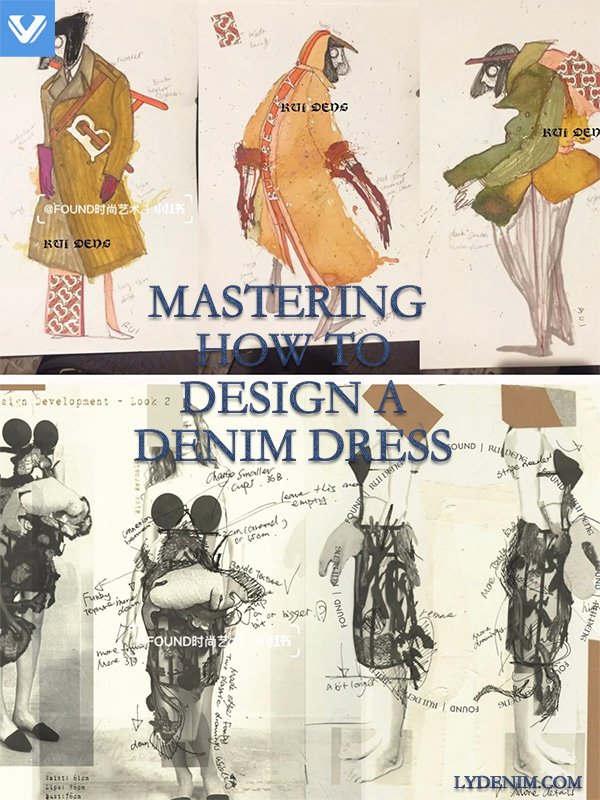
Estimated reading time: ~5 minutes
Introduction
Designing a denim dress requires a combination of creative thinking and functional design to transform basic fabric into fashionable attire. The fabric demonstrates excellent durability, comfortable features, and high design flexibility. Denim remains a popular material due to its market value, which reached $86.66 billion in 2024 and will expand to $121.50 billion by 2030 at a Compound Annual Growth Rate of 5.9% [1]. The expanding market shows denim remains popular with consumers. Fashion outlets show denim dresses are making a comeback in 2025 through their promotion of ruched and fitted styles that incorporate nostalgic retro elements [2] [3]. The 2025 fashion industry prioritizes sustainability and personalization in clothing design, so learning design techniques will enable you to create contemporary functional denim dresses. A complete guide leads users through each phase of creation from inspiration to delivery.
Gathering Inspiration
Start by collecting ideas from multiple sources:
- Nature & Environment: Plant shapes, leaf veins, floral patterns can inspire distressing or print motifs [5].
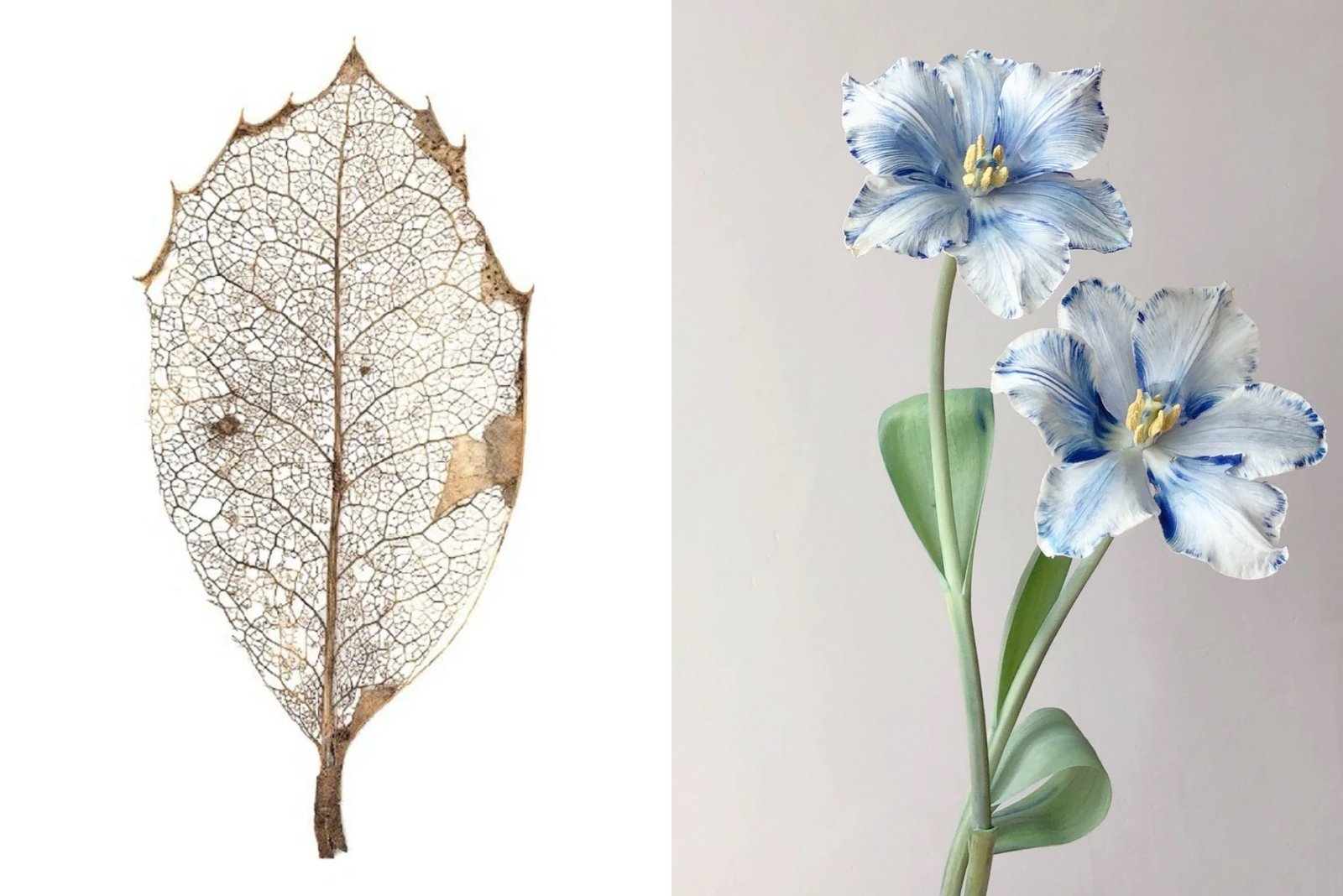
Design Nature & Environment Inspiration
- History & Culture: Baroque puffed sleeves from vintage fashion along with classic denim workwear elements can help define silhouettes [6].
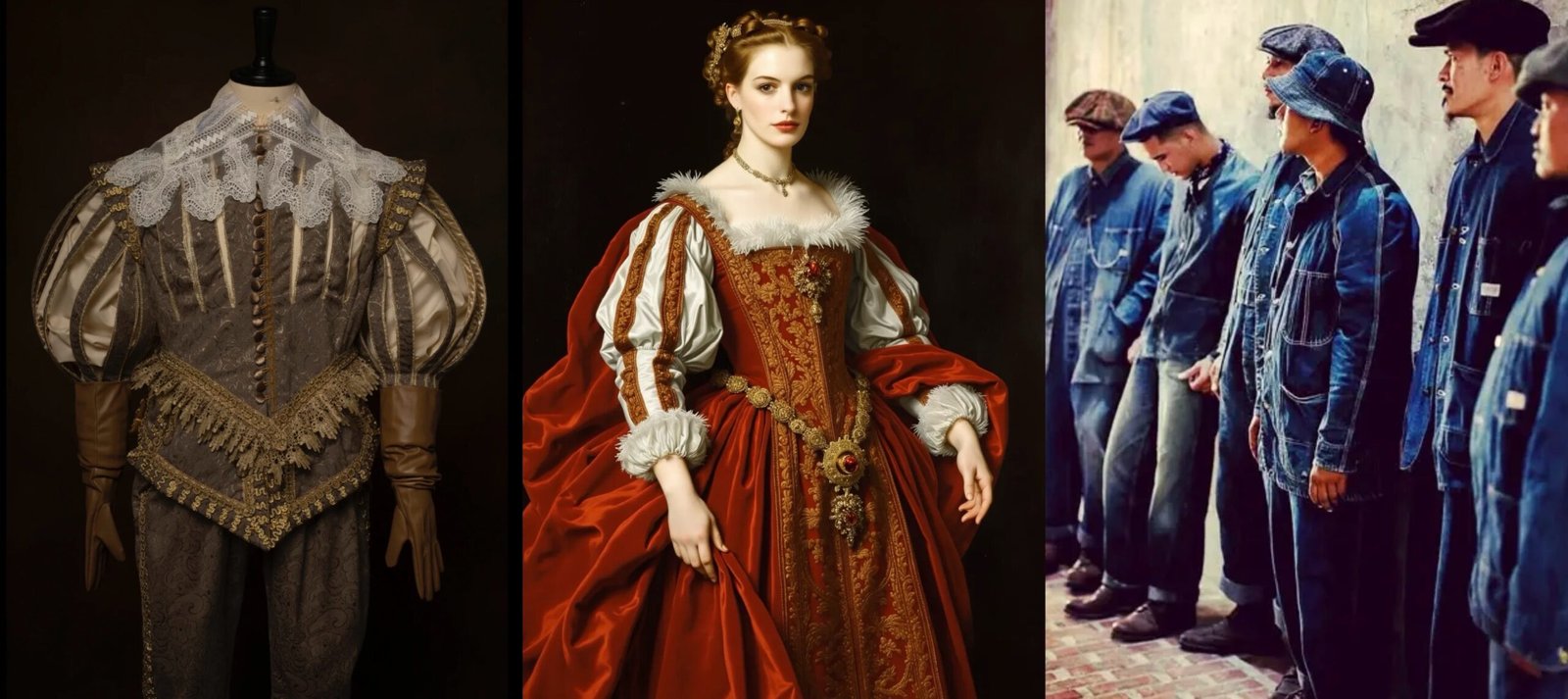
Design History Inspiration
- Material & Techniques: Think of innovative fabric effects like laser-engraved patterns, tie-dye, or bleaching on denim [7].
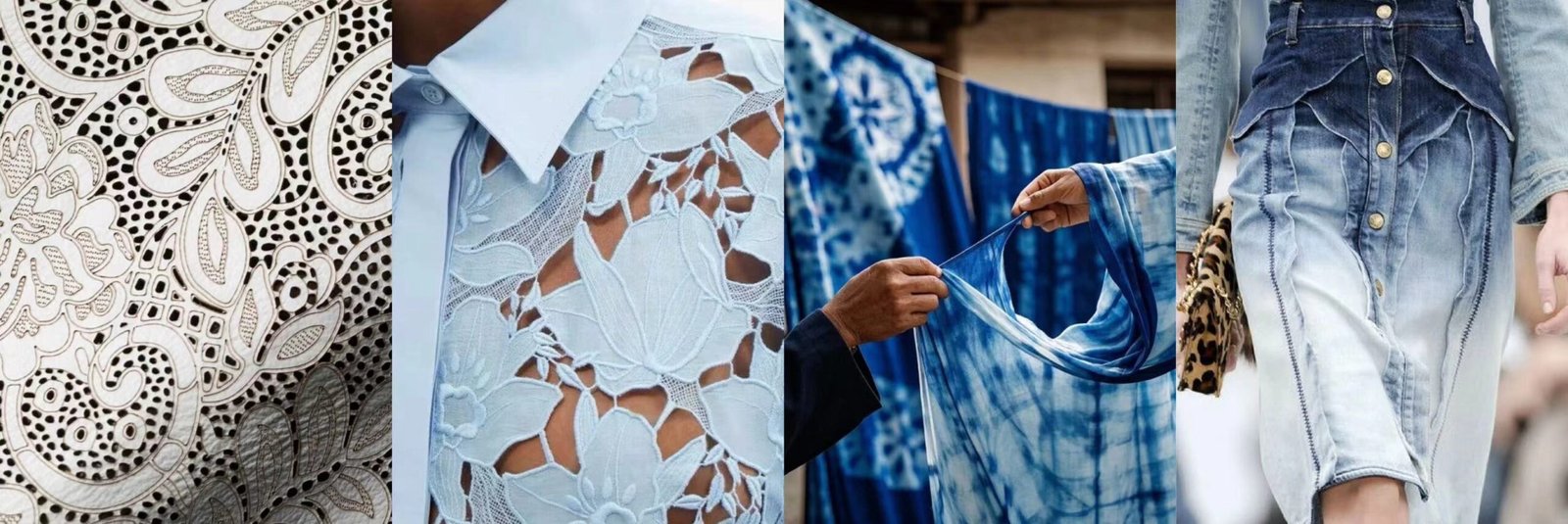
Design Material & Techniques Inspiration
- Mood & Emotion: Build mood boards or collages that merge colors and textures with images which represent your dress vision.
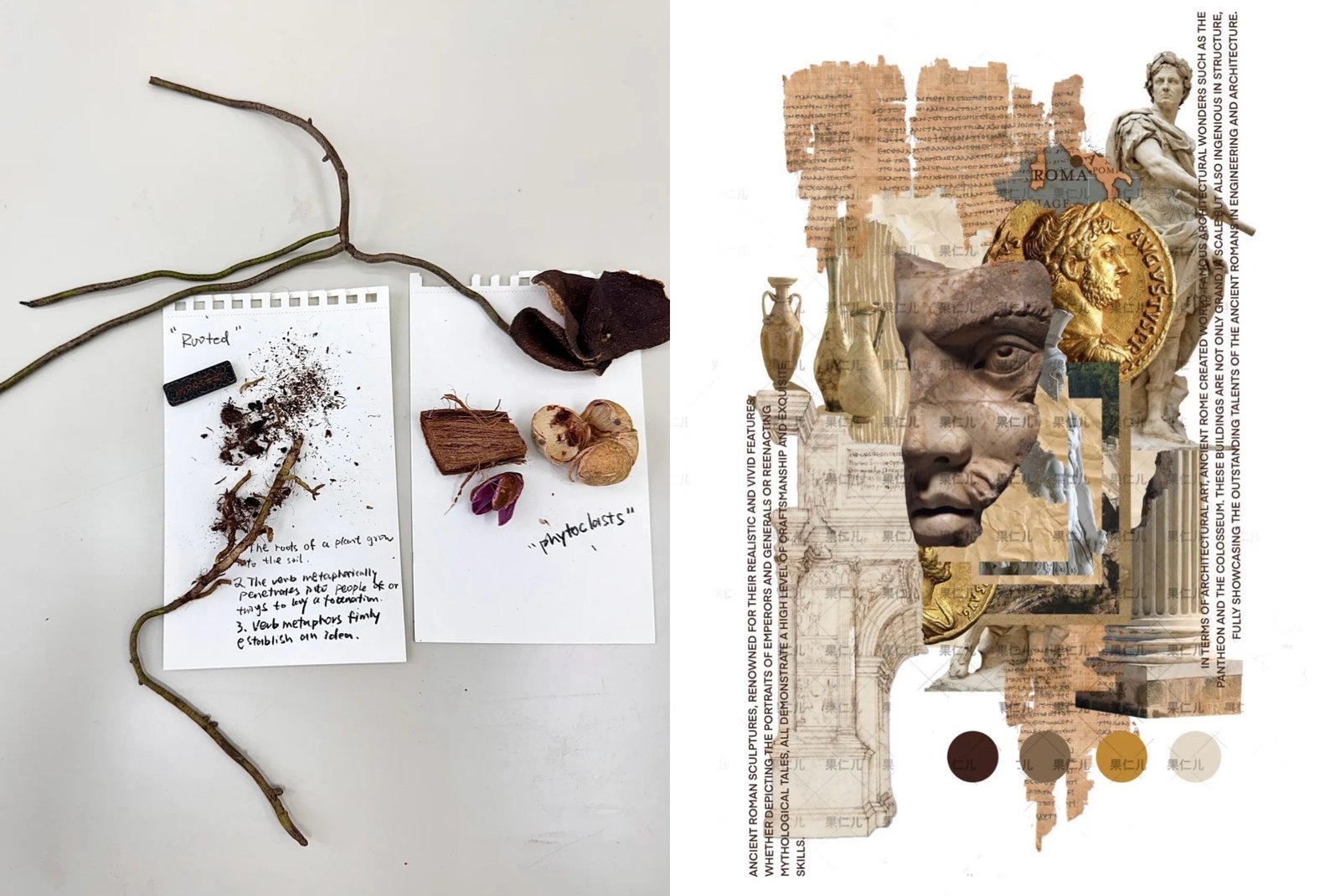
Mood & Emotion Inspiration
Save reference images of 2025 denim dresses on Instagram and Pinterest through boards that you create specifically for “2025 denim dress.” Fashion media has already identified ruched denim dresses as the key fashion trend for 2025 because they add texture and shape to clothing [2]. Visuals and references help you develop an individual design concept.
Defining Design Intent
A clear definition of design intent should be established at the beginning to identify both the intended use and the target wearer characteristics. Should the dress serve as casual everyday clothing or does it need to function as a more formal outfit? The design needs to decide between being a free-flowing bohemian design or a stiff fitted structure. The design must be created for which demographic: age range, physical dimensions, and daily habits. What occasion is this for? What should it prioritize – fashion or function? The U.S. market shows denim remains widely popular since women’s skinny jeans sales decreased only 3% in 2023 [8], indicating ongoing fashion interest in denim styles. The measurements of the wearer (bust, waist, hips) will help define the basic silhouette while maintaining comfort. A precise design brief at this stage will direct the following operations.
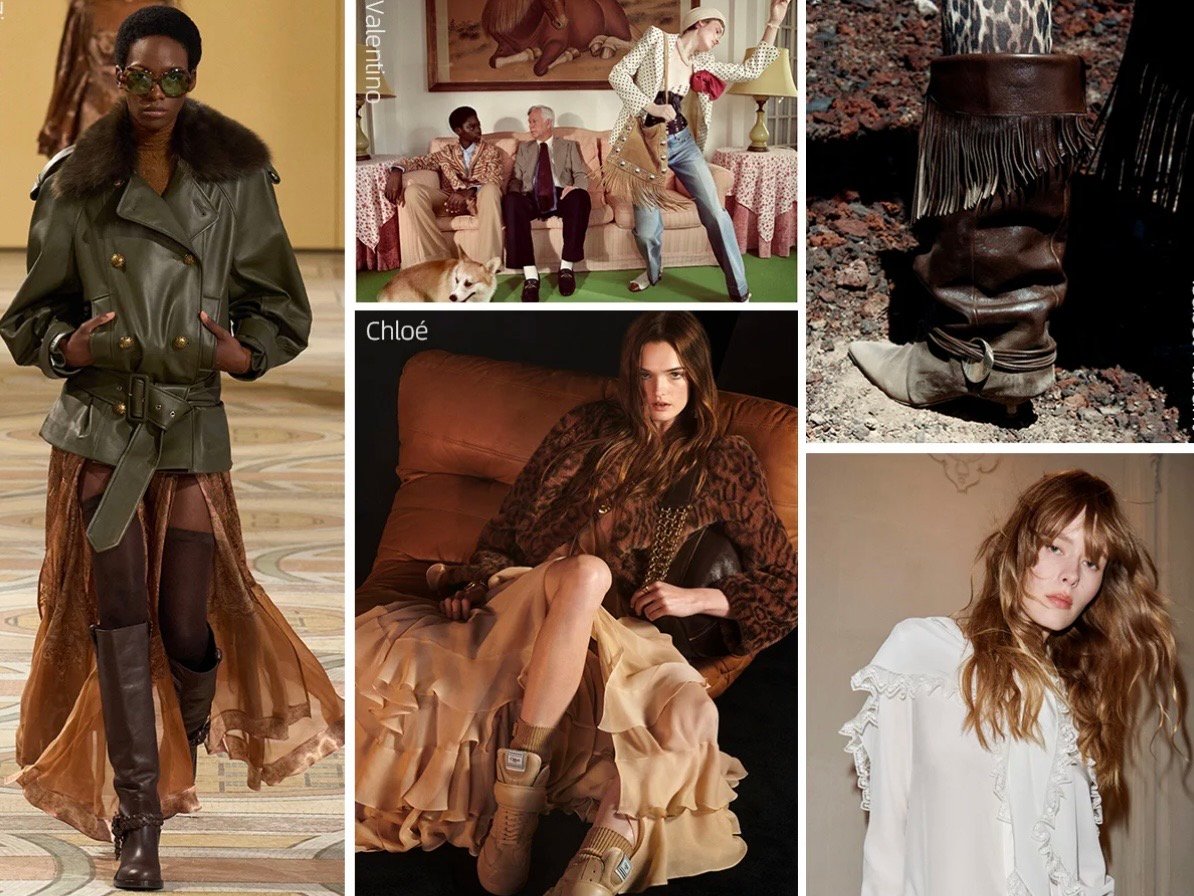
Defining Design Intent
Researching Structure and Elements
The study evaluates how various denim fabric types and manufacturing processes affect their performance. The characteristics of denim weight and fabric composition determine both the shape and how it hangs on the body. A medium-weight denim with a weight range of 8–12 oz proves to be the most suitable for dresses since it provides both structure and movement. The addition of 2–3% elastane to stretch denim provides both comfort and flexibility in fitted dresses [9]. Test existing garments with different weights of denim to observe the shape retention of heavy denim against lightweight denim that produces fluid drape. Study the construction elements of seams (flat-felled or overlock) and hems as well as stitching methods. Research fabric technologies because laser engraving methods allow designers to create complex surface designs on denim fabric [7]. Research the 2025 color palette and wash options which include indigo, acid wash, and faded blue to select a fashionable and practical denim fabric that matches seasonal trends.
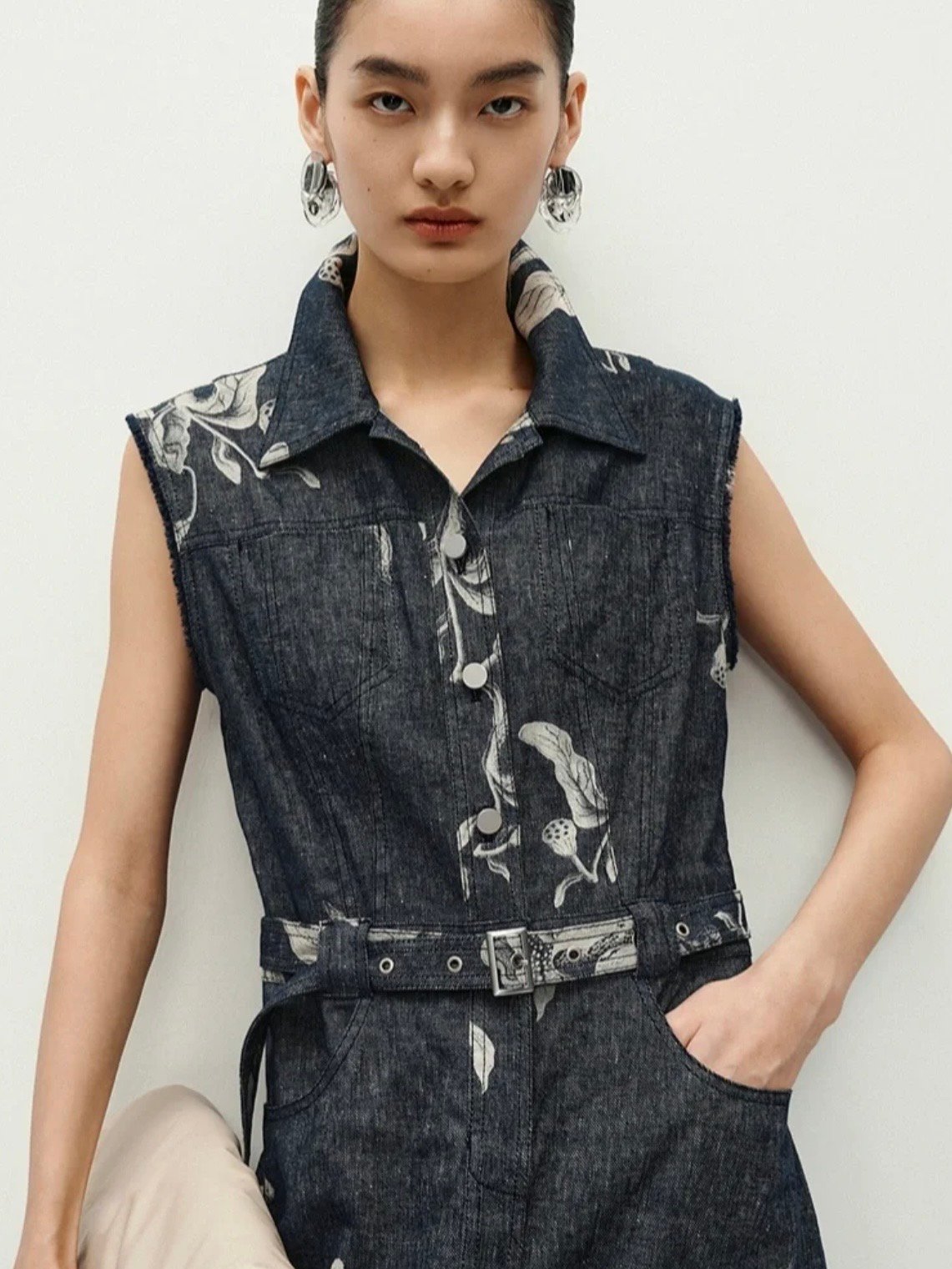
Researching Structure and Elements
Concept Sketching Techniques
Turn ideas into sketches. Use a croquis template (a fashion figure outline) to draw your dress silhouette from multiple viewing perspectives. Try various necklines and sleeve designs in combination with different skirt measurements and decorative elements that include pockets, collars, and panel seams. Include trendy elements that match the current fashion style and the classic indigo wash and vintage-style yoke. The Fashionary sketchbook and digital applications like Procreate assist users in keeping proportions accurate and making design modifications efficiently. Make sure to include denim color samples along with finish notes in your designs. You should generate unambiguous sketches that show the complete design elements of your dress.
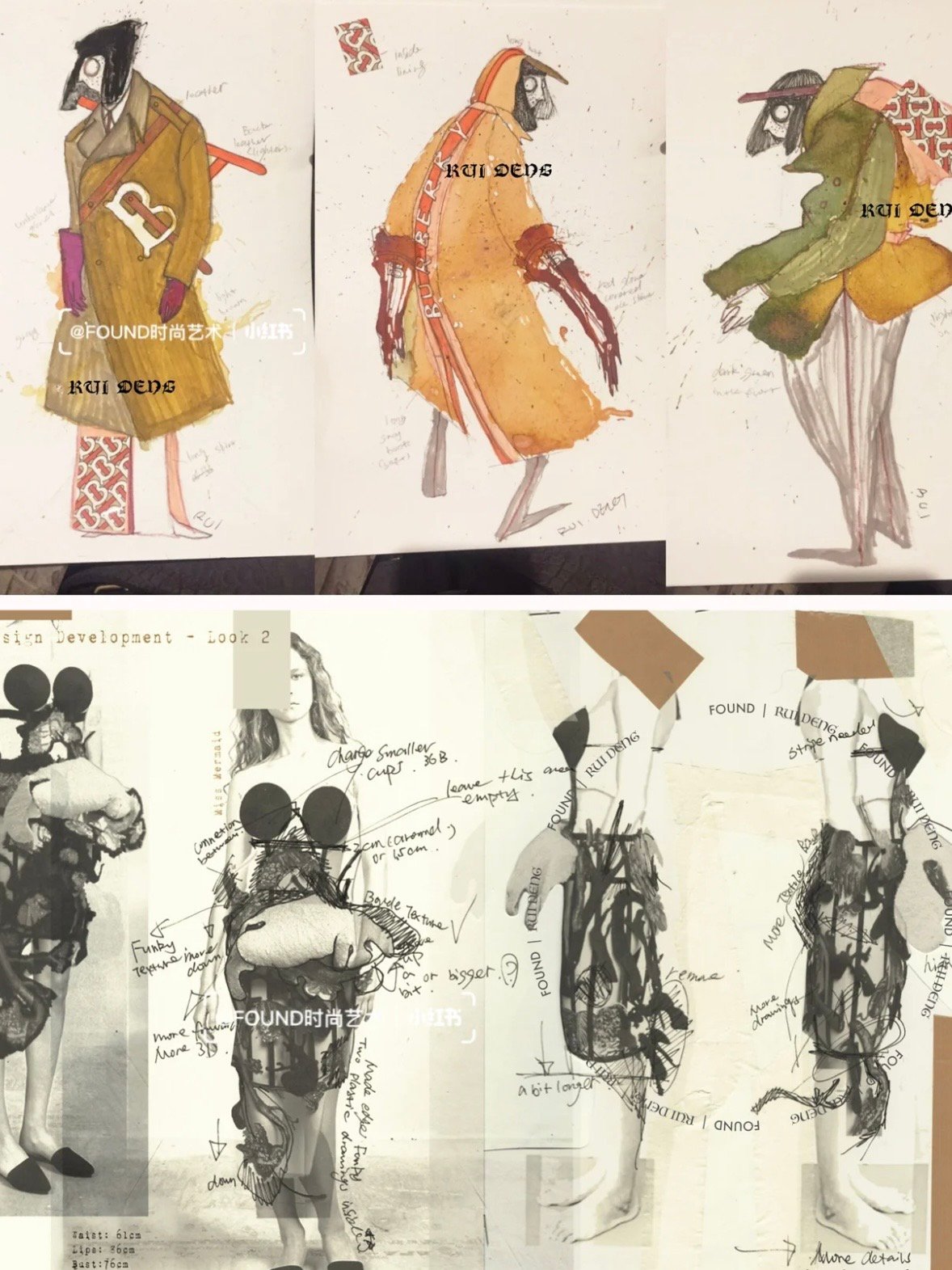
Concept Sketching
Analyzing Your Denim Dress Concept
Check the sketches against your original design intent to ensure they align properly. Do the proportions match your vision? The style fits with the selected theme and inspiration elements. The design goals included a ‘nostalgic 90s’ look but does the shape and decorative elements achieve this design? Adjust functional aspects such as zipper placement to create ergonomic designs. Are seams reinforced where needed? You should request input from both your peers and people who could wear the garment. Sharing sketches at the beginning of custom design projects helps prevent future design delays. The design becomes cohesive through multiple revisions that involve changing lengths and fullness and switching from a straight skirt to an A-line style.
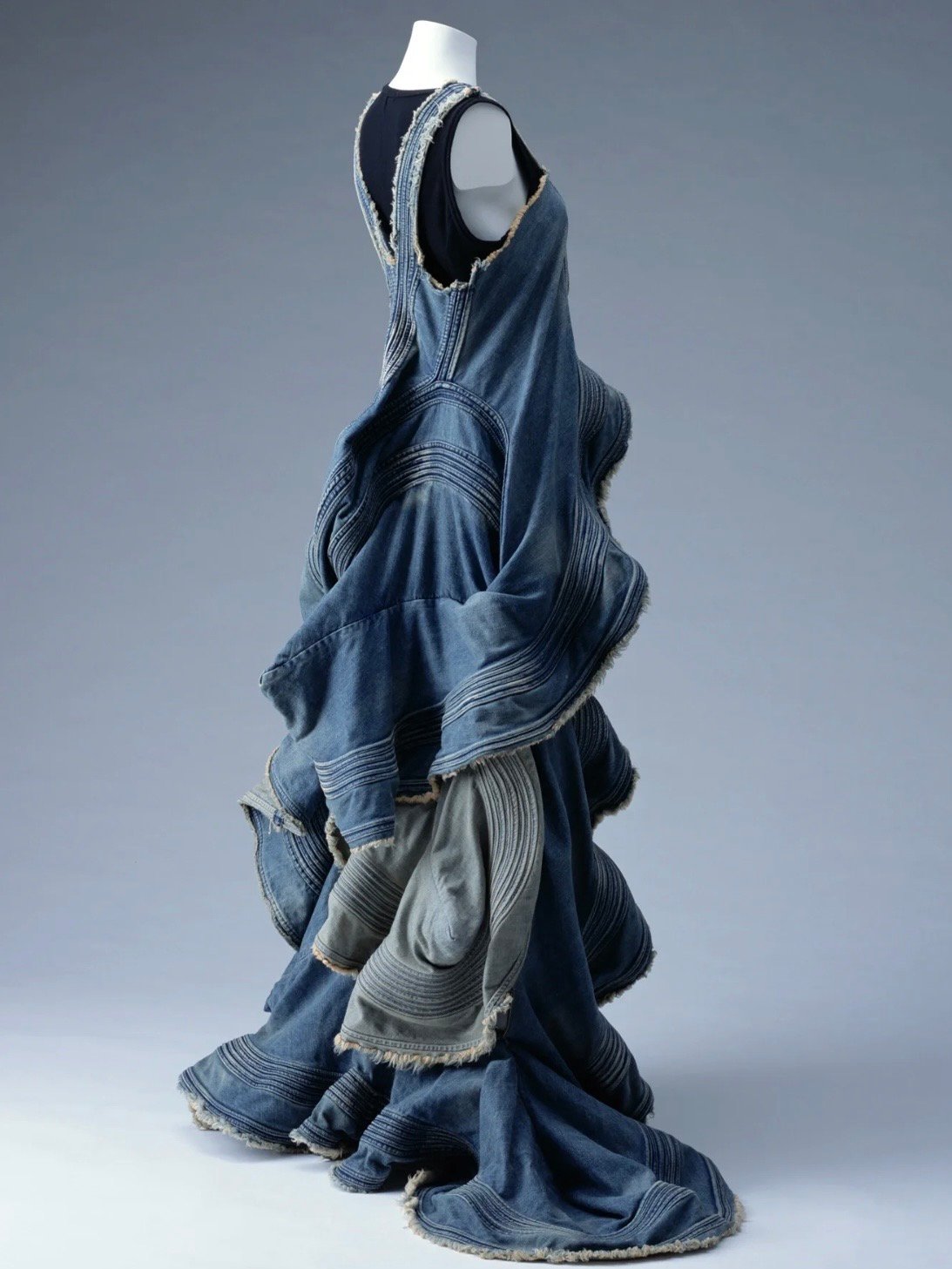
Analyzing Your Denim Dress Concept
Illustrating the Design
The illustration process involves creating professional drawings that display the dress while the model wears it. The visual representation shows how the outfit moves during wear. Draw your design on a model dummy or sketch a fitting model to demonstrate fabric draping and movement. The illustration should feature distinctive design aspects including embroidered logos as well as printed graphics along with particular closures. Through an elaborate fashion illustration, designers can effectively show their completed design aesthetic together with its emotional mood. You can mark specific areas of the illustration with different colors to demonstrate fabric texture (dark indigo denim and contrast stitching) while adding illustrations for complete outfit accessories.
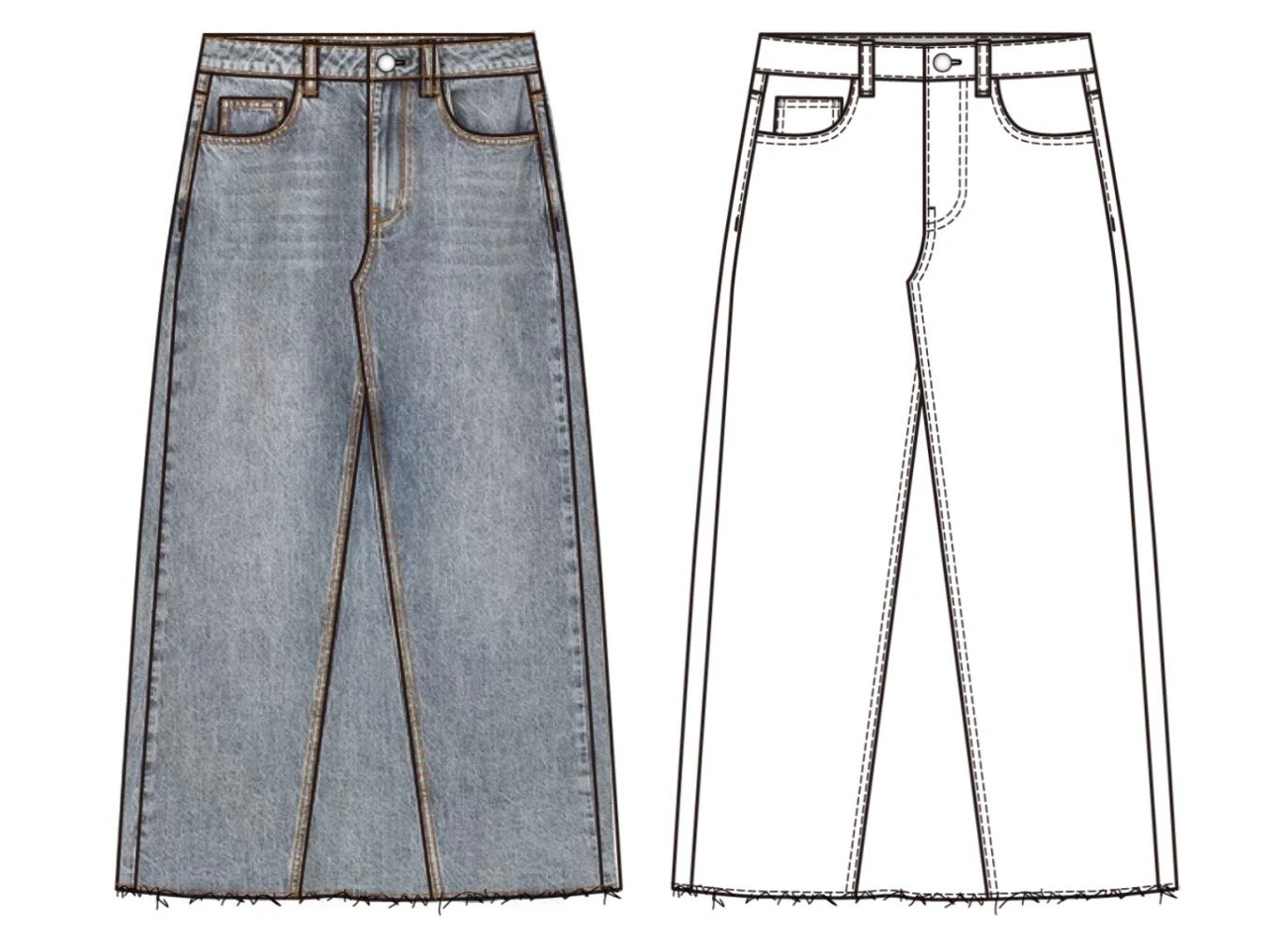
Illustrating the Design
Practical Tips
- Measurements: Verify body measurements (bust, waist, hip) for both the person who will wear the garment and the pattern itself twice to avoid errors.
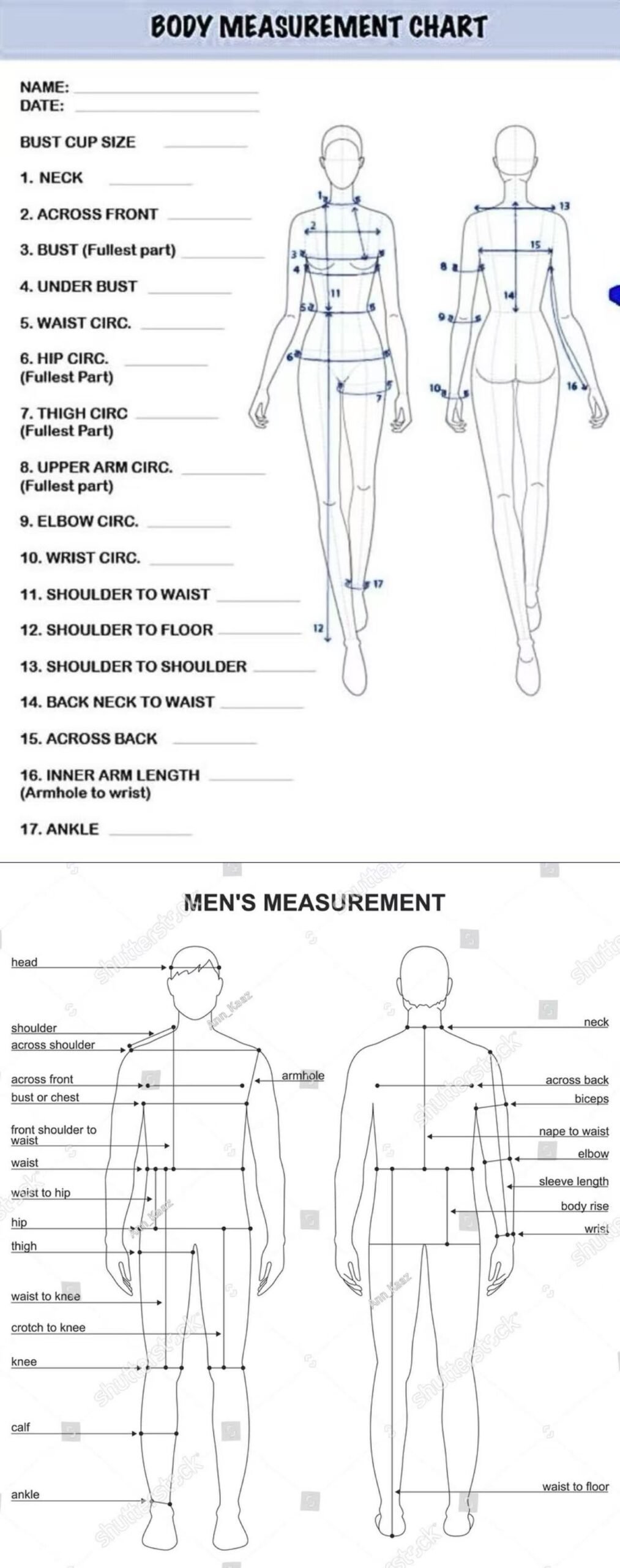
Body Measurements
- Fabric Selection: Before production, test denim samples to determine the best fabric choice. Select denim fabrics that match your weight requirements and stretch needs for your design. The heaviness of denim fabric determines its shape retention but it becomes stiff; lightweight denim drapes better but tends to wrinkle easily. The choice of denim weight depends on the season because lighter stretch denim suits spring/summer dresses while heavier weights suit autumn/winter designs.

- Layering: Denim dresses work well for different seasons because they can be worn in various combinations. The sleeveless denim dress looks best when paired with a long-sleeve shirt or turtleneck under it, and you can add leggings or tights for warmth. You can finish the look by putting on a matching jacket or cardigan. During summer weather, you should wear the dress either by itself or with a light blouse while choosing between sandals or sneakers. The combination of layering techniques creates both fashionable designs and expands how often the dress can be worn.

Denim Dresses
- Personalization: Custom details help create individuality in the design through customization. Embroidery along with printed graphics and decorative stitching and patches represent possible custom details you can add to the design. The fashion industry predicts barrel-leg silhouettes will become prominent in 2025 fashion trends even for dresses as they resemble wide-leg jeans [12]. You can create an edgy look by putting “cut-off” denim (jorts-inspired) patchwork into a dress panel.
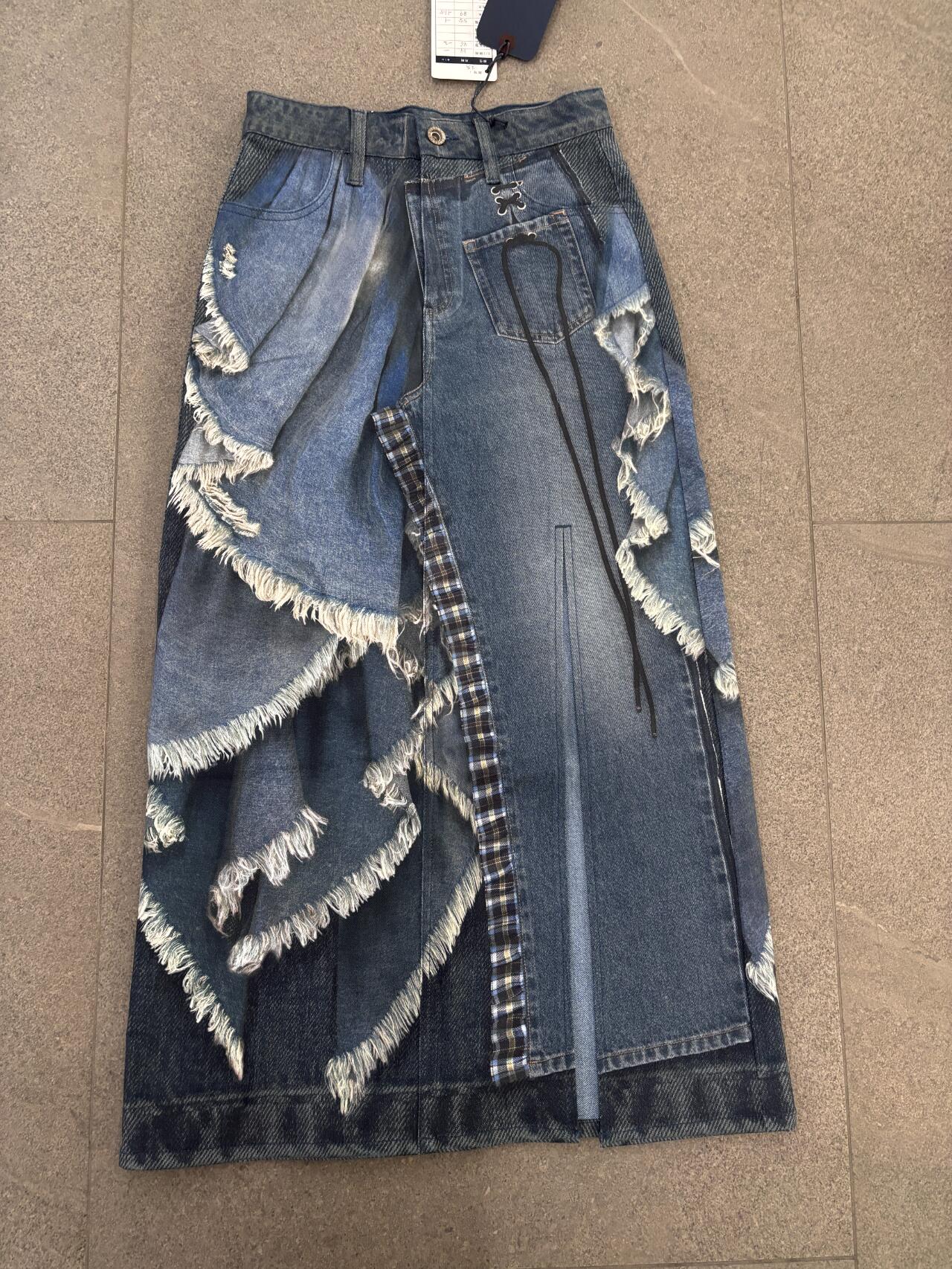
- Suppliers: Select denim fabric suppliers who specialize in their field. Fabric mills and custom denim suppliers (such as LY Denim) can produce particular fabric blends and finishing options. Their collection includes both custom stretch denim materials and sustainable fabric alternatives. Before making fabric purchases, you should request both swatches and small fabric runs while having feedback prepared for material testing. The majority of suppliers provide fabric modifications until you find the perfect fabric for your design.

lydenim
Conclusion
Learning how to design a denim dress allows you to incorporate your personal style with a classic material. You can confidently make a custom denim dress that is both trendy and functional by following a structured process that starts with inspiration gathering and sketching, continues with detailed spec creation, and concludes with thorough reviews. In 2025, the denim world is driven by both nostalgic design references and innovative sustainability [3] [4]. With these steps, your denim dress will be well-positioned in the modern market. Start today, and your own denim masterpiece awaits!
Customization Services by LYDENIM
Seeking premium denim fabrics or bespoke denim garments? LYDENIM delivers tailored solutions to elevate your design and production goals with luxurious, textured fabrics.
🎨 Custom Fabrics: Explore our high-quality denim, including jacquard and 4-harness twill options, or create custom blends (e.g., cotton-chenille, chenille-spandex) with unique textures. Visit lydenim.com to discover our range.
🛍️ Custom Apparel: Design standout denim garments with our versatile chenille weaves, from soft-touch jeans to elegant jackets. Browse and customize on Myalibaba.
📩 Contact Us: Connect with our team at malone@lydenim.com to discuss your fabric or apparel needs, from weave patterns to sustainable blends.
Craft your vision with LYDENIM—your trusted partner for innovative, high-quality denim fabrics and custom apparel solutions.

helloI really like your writing so a lot share we keep up a correspondence extra approximately your post on AOL I need an expert in this house to unravel my problem May be that is you Taking a look ahead to see you